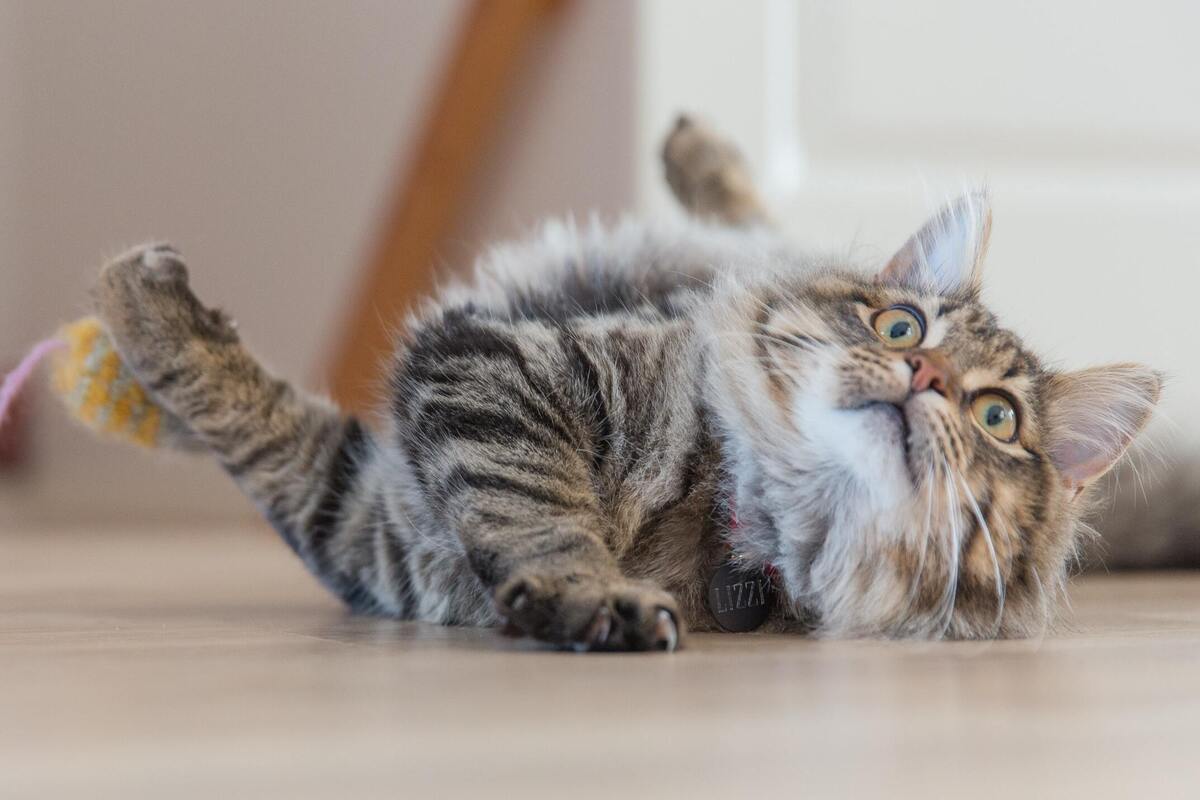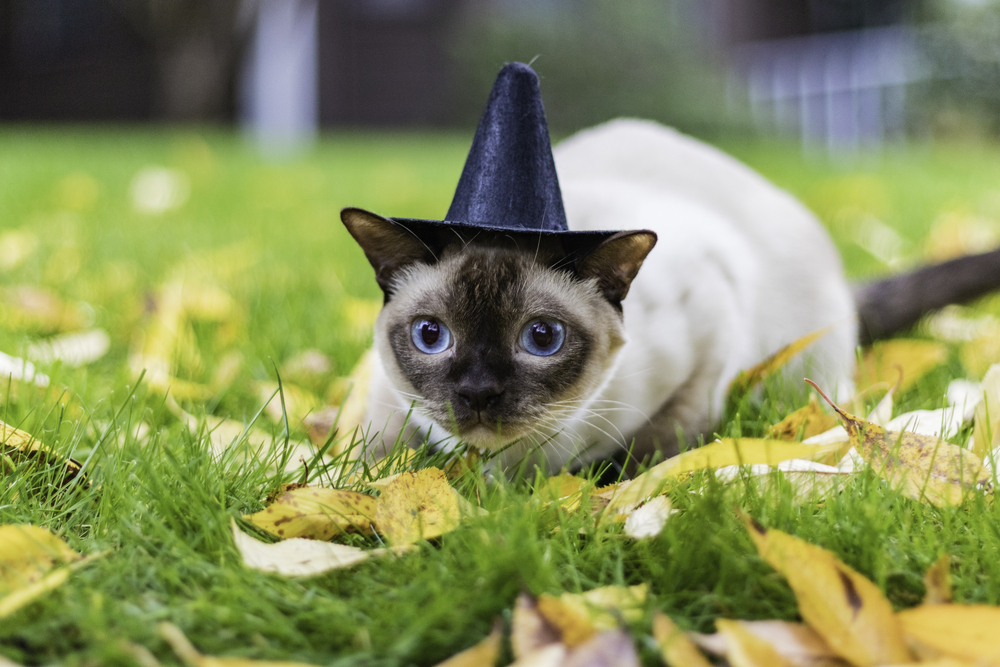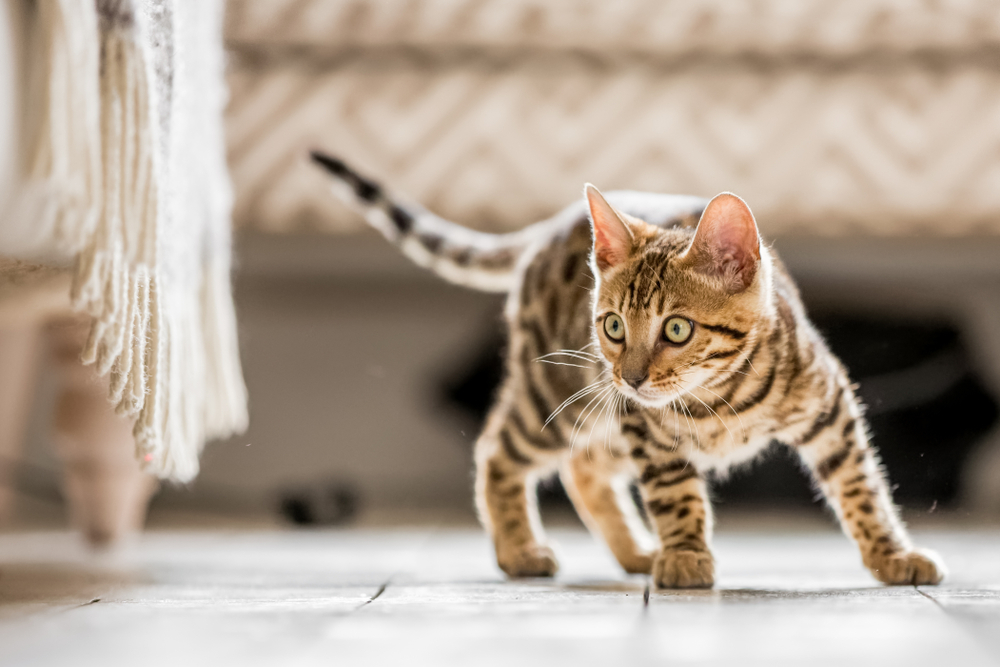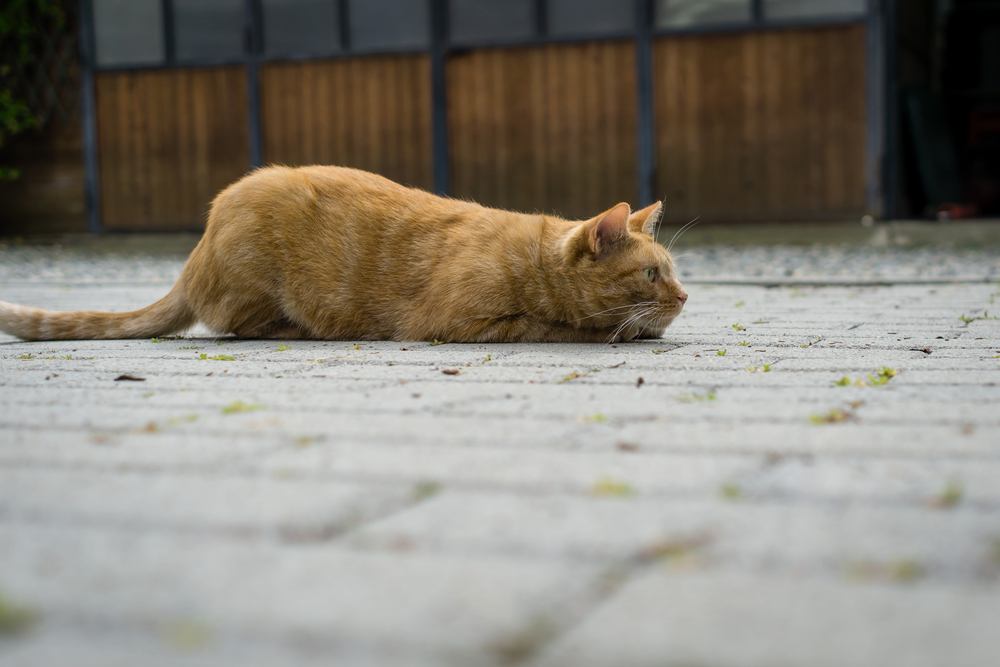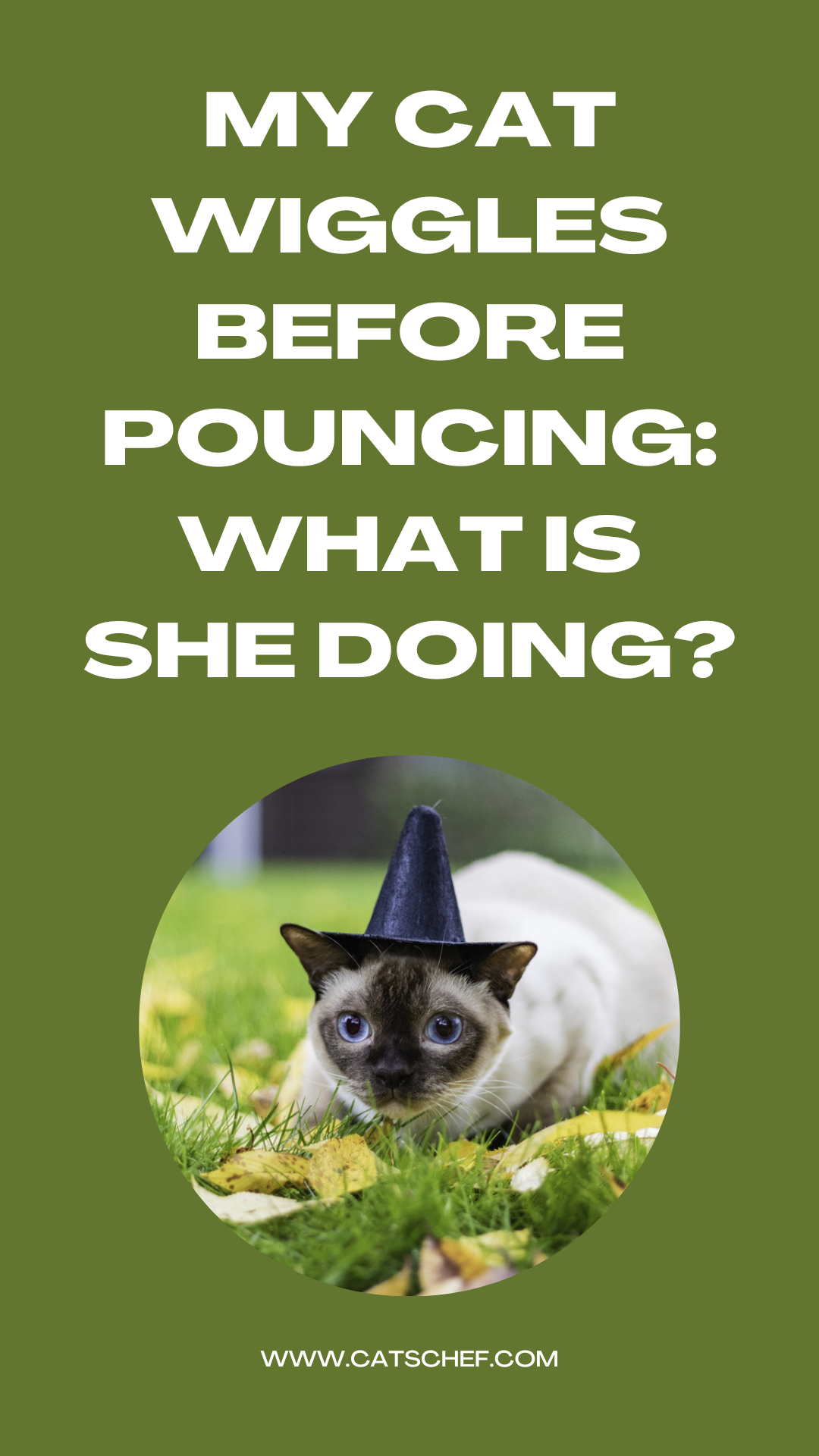📖 Table of Content:
“Why does my cat do the little butt wiggle thing before she pounces? She’s adorable, but she looks like she’s doing a little pre-hunt shimmy and it’s freaking me out!”
Oh, that’s because she probably thinks she’s doing a pre-hunt shimmy even when she’s getting ready to attack your foot under the blanket.
Cats are curious creatures, and we’ve grown accustomed to the strange sounds they make and the odd things they do when they’re comfortable enough to be themselves.
On one hand, cats wiggle before pouncing because they’re warming up, getting ready to attack whatever or whoever they have their eyes on, and figuring out the deets of the attack. On the other hand, they’re listening to Jason Derulo’s “Wiggle” and acting accordingly.
We’re kidding, we’re kidding – wiggling seems to make cats happy and that’s pretty much everything we need to know. We’re bringing you a few of our favorite explanations of your cat’s kooky communication methods down below.
Why do cats wiggle before pouncing?
1. It’s a stability thing – cats are cautious and adamant to keep themselves safe at all times
Cats know what’s up.
So, unlike your clumsy friend Stacy who stubs her toe and busts her knee every time she walks from one room to the other, your cat knows that something bad’s going to happen when she’s not paying attention.
First of all, she wiggles her butt to test the stability of the ground underneath her. She makes sure she’s got sufficient traction to bounce off the ground without slipping and falling. She keeps her balance and executes her move purrfectly – every single time.
2. Because they’re warming up before the attack
You warm up before working out, right? Your cat’s following the same advice!
Whether you work out at home or go to the gym, your cat seems to have figured out what your routine looks like. Sort of. We’re aware that cats do everything to protect themselves – that’s something your four-legged friend inherited from her ancestors.
When she’s wiggling her butt, she’s preparing the entire body for a huge hop, a pounce, or whatever might hurt her. She’s making sure that her vision, proprioception (the awareness of her movements or her position), and muscles are prepared for what’s about to ensue.
3. Because they’re planning their next move
Your fluffy friend’s mighty, but she might need some time to figure out what she needs to do.
When the two of you are running around the apartment, teasing each other, and playfighting, you might notice her wiggling her butt every time she attacks you. You might even notice she’s wiggling her butt longer and longer each time you attack her back. You see, she’s probably averting your attention.
Whether she wiggles her butt, meows at you, or does something unexpected, chances are she’s trying to use the situation against you. She’s recouping while you’re busy trying to figure out why she’s wiggling her butt. She’s going to attack you when you don’t expect her to.
4. It’s fun to do
OK, we need to be honest – cats don’t need a reason to do something.
Whether they’re headbutting you, scratching your sofa, or wiggling before pouncing, there’s something extremely entertaining about these actions. Sure, we know that cats want to claim you as one of their own, mark their territory, and make sure they’re doing everything right.
However, we also know that cats do a myriad of mysterious things because they’re bored, too. Before you contact your vet because you’re worried about your fluffer’s state of mind, don’t forget to check whether she’s bored. A wiggle might be your cat’s way of saying “Mom, I want to play with you!”
5. It’s a dopamine thing – cats’ brains release dopamine when they hunt
Dopamine makes cats super, super energetic.
When your cat’s hunting birds, mice, and crawling creatures around the backyard, she gets excited because of dopamine – a feel-good hormone that gets released when cats hunt. Wiggling her butt before pouncing might be a response to that rush of dopamine.
She’s so happy that she can’t stop wiggling and showing off her excitement. She’s also getting ready to kill everything she can get her paws on which means that dopamine might be responsible for that, too.
6. It’s an instinctive and intuitive pattern of behavior
Wiggling’s a little bit of both, apparently. While pet parents and pet behaviorists believe that wiggling’s a hunting behavior that’s passed on to cats from generations and generations that came before them, there’s a theory that kittens also learn how to wiggle by observing older siblings.
Kittens’ wiggles are often uncoordinated and unable to prepare them for the pounce or the attack they’re trying to perform. Because of that, kittens rely on cats to demonstrate “the proper wiggle” and teach them how to hunt without getting themselves hurt. But these theories haven’t been proven.
7. Because they’re trying to focus on the prey
Wild cats wiggle because they’re trying to focus on the prey – “the death wiggle” seems to affect them, whether that’s an effect on their concentration, attentiveness, or understanding of the situation.
Domesticated cats that live on the streets and hunt birds, mice, and bugs showcase the same wiggle technique, too. But, domesticated cats that live inside report to the wiggle, too. Why’s that?
Now, even though your cat doesn’t hunt, that doesn’t mean that she doesn’t want to. When she’s playfighting with you, attacking you from under the blanket, and wiggling her butt, she’s expressing her hunting behavior. When she’s wiggling, she’s focusing on her prey – a.k.a. your feet.
8. Because cats tend to do things humans don’t understand
Need we say more?
Cats are known to do things humans don’t understand, and that’s OK. Wiggling her butt means she’s happy, healthy, and ready to play – and that’s pretty much all that matters.
Whether she’s balancing on her beans, planning her next move, or focusing on her prey, she doesn’t care. She’s wiggling the day away, either way. Embrace your cat’s endearing behavior and wiggle your butt when she wiggles hers!
